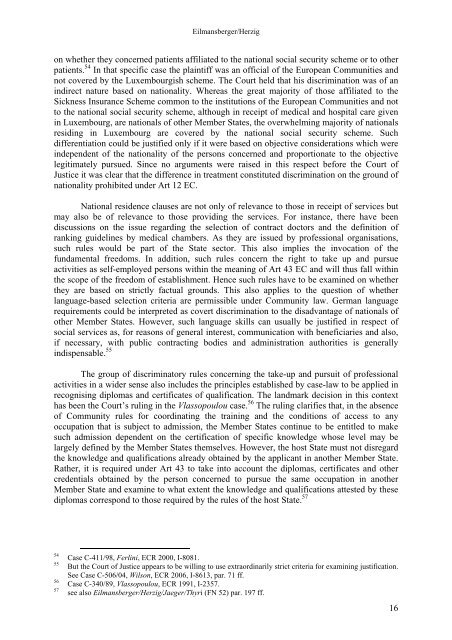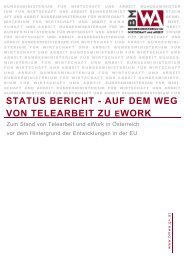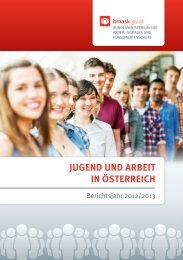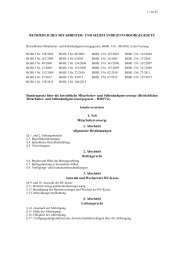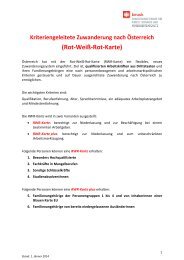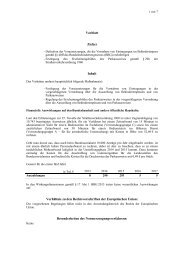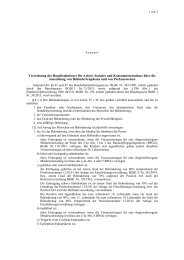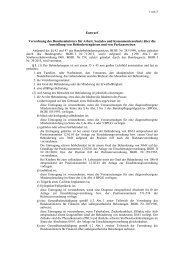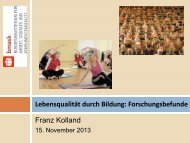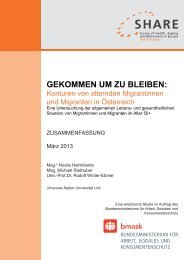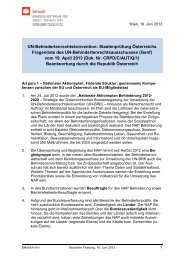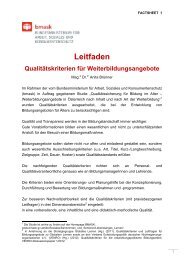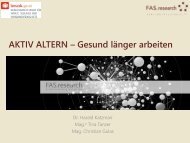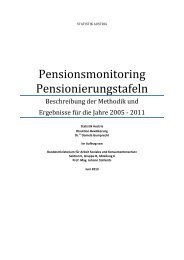Social Services of General Interest (SSGI)
Social Services of General Interest (SSGI)
Social Services of General Interest (SSGI)
You also want an ePaper? Increase the reach of your titles
YUMPU automatically turns print PDFs into web optimized ePapers that Google loves.
Eilmansberger/Herzig<br />
on whether they concerned patients affiliated to the national social security scheme or to other<br />
patients. 54 In that specific case the plaintiff was an <strong>of</strong>ficial <strong>of</strong> the European Communities and<br />
not covered by the Luxembourgish scheme. The Court held that his discrimination was <strong>of</strong> an<br />
indirect nature based on nationality. Whereas the great majority <strong>of</strong> those affiliated to the<br />
Sickness Insurance Scheme common to the institutions <strong>of</strong> the European Communities and not<br />
to the national social security scheme, although in receipt <strong>of</strong> medical and hospital care given<br />
in Luxembourg, are nationals <strong>of</strong> other Member States, the overwhelming majority <strong>of</strong> nationals<br />
residing in Luxembourg are covered by the national social security scheme. Such<br />
differentiation could be justified only if it were based on objective considerations which were<br />
independent <strong>of</strong> the nationality <strong>of</strong> the persons concerned and proportionate to the objective<br />
legitimately pursued. Since no arguments were raised in this respect before the Court <strong>of</strong><br />
Justice it was clear that the difference in treatment constituted discrimination on the ground <strong>of</strong><br />
nationality prohibited under Art 12 EC.<br />
National residence clauses are not only <strong>of</strong> relevance to those in receipt <strong>of</strong> services but<br />
may also be <strong>of</strong> relevance to those providing the services. For instance, there have been<br />
discussions on the issue regarding the selection <strong>of</strong> contract doctors and the definition <strong>of</strong><br />
ranking guidelines by medical chambers. As they are issued by pr<strong>of</strong>essional organisations,<br />
such rules would be part <strong>of</strong> the State sector. This also implies the invocation <strong>of</strong> the<br />
fundamental freedoms. In addition, such rules concern the right to take up and pursue<br />
activities as self-employed persons within the meaning <strong>of</strong> Art 43 EC and will thus fall within<br />
the scope <strong>of</strong> the freedom <strong>of</strong> establishment. Hence such rules have to be examined on whether<br />
they are based on strictly factual grounds. This also applies to the question <strong>of</strong> whether<br />
language-based selection criteria are permissible under Community law. German language<br />
requirements could be interpreted as covert discrimination to the disadvantage <strong>of</strong> nationals <strong>of</strong><br />
other Member States. However, such language skills can usually be justified in respect <strong>of</strong><br />
social services as, for reasons <strong>of</strong> general interest, communication with beneficiaries and also,<br />
if necessary, with public contracting bodies and administration authorities is generally<br />
indispensable. 55<br />
The group <strong>of</strong> discriminatory rules concerning the take-up and pursuit <strong>of</strong> pr<strong>of</strong>essional<br />
activities in a wider sense also includes the principles established by case-law to be applied in<br />
recognising diplomas and certificates <strong>of</strong> qualification. The landmark decision in this context<br />
has been the Court’s ruling in the Vlassopoulou case. 56 The ruling clarifies that, in the absence<br />
<strong>of</strong> Community rules for coordinating the training and the conditions <strong>of</strong> access to any<br />
occupation that is subject to admission, the Member States continue to be entitled to make<br />
such admission dependent on the certification <strong>of</strong> specific knowledge whose level may be<br />
largely defined by the Member States themselves. However, the host State must not disregard<br />
the knowledge and qualifications already obtained by the applicant in another Member State.<br />
Rather, it is required under Art 43 to take into account the diplomas, certificates and other<br />
credentials obtained by the person concerned to pursue the same occupation in another<br />
Member State and examine to what extent the knowledge and qualifications attested by these<br />
diplomas correspond to those required by the rules <strong>of</strong> the host State. 57<br />
54 Case C-411/98, Ferlini, ECR 2000, I-8081.<br />
55 But the Court <strong>of</strong> Justice appears to be willing to use extraordinarily strict criteria for examining justification.<br />
See Case C-506/04, Wilson, ECR 2006, I-8613, par. 71 ff.<br />
56 Case C-340/89, Vlassopoulou, ECR 1991, I-2357.<br />
57 see also Eilmansberger/Herzig/Jaeger/Thyri (FN 52) par. 197 ff.<br />
16


